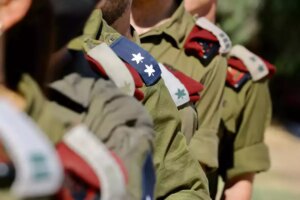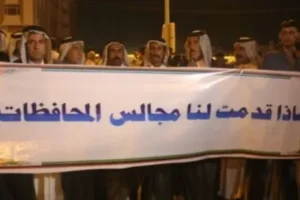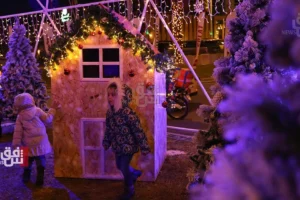
On November 11, Iraqis will head to the polls for parliamentary elections, the seventh since the 2003 U.S. invasion that ushered in free and fair multiparty politics. Despite a turbulent democratic transition, Iraq witnessed several peaceful transfers of power and only one prime minister, president, and two speakers of parliament have managed to secure sufficient political support for a second term – a remarkable feat for a fledgling democracy. At the time, the country’s politics were largely consensual. Keen on consolidating their newly acquired influence, political elites across different groups were willing to compromise to divide government positions and ministries. The power-sharing arrangement under which the presidency is reserved for a Kurd, the premiership for a Shi’i, and the speaker of parliament for a Sunni rests on the assumption that these factions find internal consensus and each nominate a candidate for its allotted position. Adherence to this logic as part of the informal bargain among elites facilitated government formation and, more importantly, peaceful transfers of power. With each ensuing election, this has become more difficult resulting in drawn-out government formations.
Political Fragmentation
The 2021 elections marked the first serious test for peaceful transfer of power as rival Shia blocs became embroiled in a year-long power struggle that brought the country to the brink of conflict. The crisis stemmed from tensions between two dominant Shia blocs: the Sadrist Movement, led by populist cleric Muqtada Al-Sadr, and the Coordination Framework, a broader coalition made up from the other major Shia parties. When Sadr refused to include certain parties from the Coordination Framework in his coalition to form the government, his rivals blocked the quorum needed to elect a president – a crucial step before designating a prime minister. Unable to get over the hurdle his rivals presented him with, he ordered his 73 MPs to resign, making the Coordination Framework the largest bloc in parliament. Despite his withdrawal, Sadr’s followers stormed and occupied the parliament in protest, which concluded in clashes with security forces, leaving dozens dead before Sadr intervened to halt the violence, and announce his latest “retirement”.
Intra group divisions extend to Kurdish and Sunni political parties as well. The two main Kurdish parties – the Kurdistan Democratic Party (KDP) and the Patriotic Union of Kurdistan (PUK) – remain at odds and have failed to form a regional government more than a year after the long-delayed 2024 elections in the Kurdistan region. Following the 2021 parliamentary elections, the two parties entered separate alliances with rival Shia blocs, before both joining the State Administration Coalition with all the major Iraqi political parties except the Sadrist Movement to form the current government. Among the Sunni political leaders, former Speaker Mohammed Al-Halbousi is seeking a political comeback following his controversial removal in 2023, which triggered months of infighting among Sunni blocs over the control of the speakership. He is facing competition from two other Sunni political blocs (Azm and Siyada) for dominance in representing the Sunni component and securing the speakership of parliament.
This fragmentation has undermined the power-sharing system that once sought to heal divisions through consociational government. It was this fragmentation that led, following the 2021 elections, to the formation of a government not in line with electoral outcomes but through elite bargains driven by political expediency. The episode underscored how political considerations outweigh popular will, further eroding public faith in Iraq’s democratic experiment. It also laid bare the illusion of democracy promised after decades of dictatorship, dashing the hopes of a generation still yearning for a new dawn. It also showed that beneath the democratic veneer lies a stark political reality: as the real power is concentrated in the hands of a political elite that continues to stifle citizens’ right to genuine representation. It is these ruling elites – not the ruled masses – that determine who governs and, worse still, whether power transitions peacefully.
Iraq’s Stability Dividend
The stakes in the upcoming elections are high – both for Iraq’s stability and for a wider region reeling from turmoil. Iraq has been enjoying a period of relative stability for the first time in decades, allowing the government to focus on reconstruction and public service delivery. Prime Minister Mohammed Al-Sudani is eager for a second term and seeks to make Iraq a success after decades of instability. His administration has largely succeeded in keeping Iraq insulated from escalating regional tensions. The economy is improving but remains fragile – weighed down by mounting debts and dependence on oil revenues. Iraq has also reemerged as a regional actor after years of isolation, improving ties with Gulf monarchies eager to invest in its economy and energy sector.
In the same vein, the government has navigated tensions between the United States and Iran amid broader regional turmoil. Bilateral relations between Baghdad and Washington have continued to improve, and American energy firms are returning to Iraq. As the country strives to balance its relationship with both Iran and the United States, the outcome of the upcoming elections – and the lengthy government formation process that is likely to follow – will be critical. Prolonged political wrangling could stall these gains and dampen Iraq’s attractiveness for foreign investors and international partners.
The Sadrist Movement’s decision to boycott the upcoming election could improve Sudani’s odds, especially if Iraqis turn out in large numbers to support his re-election bid, potentially giving him a strong governing mandate. Still, he faces an uphill battle, confronting many of the same political roadblocks from established Shia parties that thwarted Sadr’s own efforts in 2021 and brought Sudani to power. Another renewed disregard for voters’ preferences would only deepen public disillusionment with electoral politics and further erode the legitimacy of Iraq’s electoral system.
Ultimately, restoring Iraqis’ faith in electoral politics, respecting election outcomes, and renewing elite commitment to genuine power-sharing and peaceful transfer of power are the kinds of resets Iraq needs to consolidate its stability dividend amid a shifting regional order.





